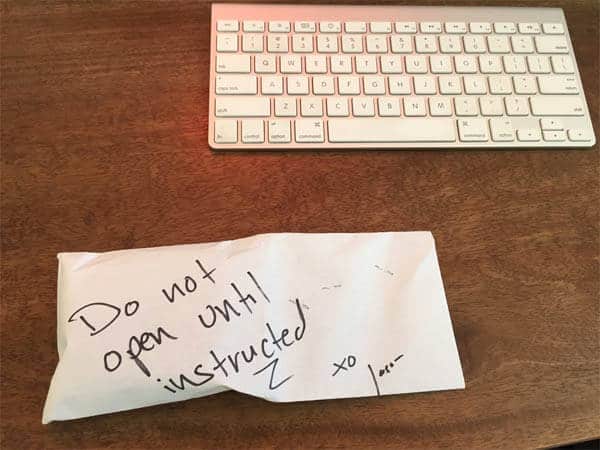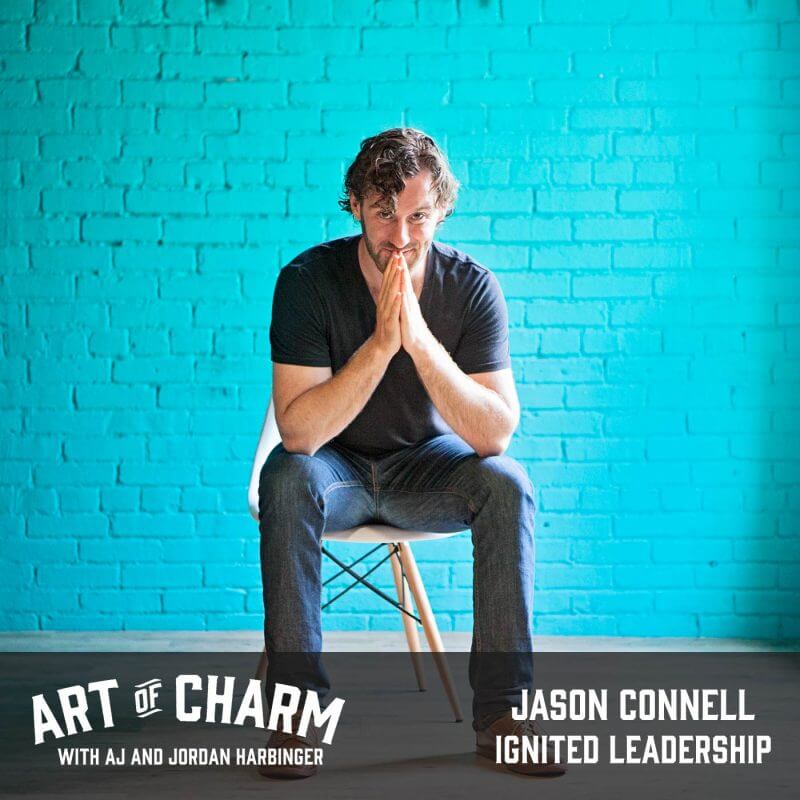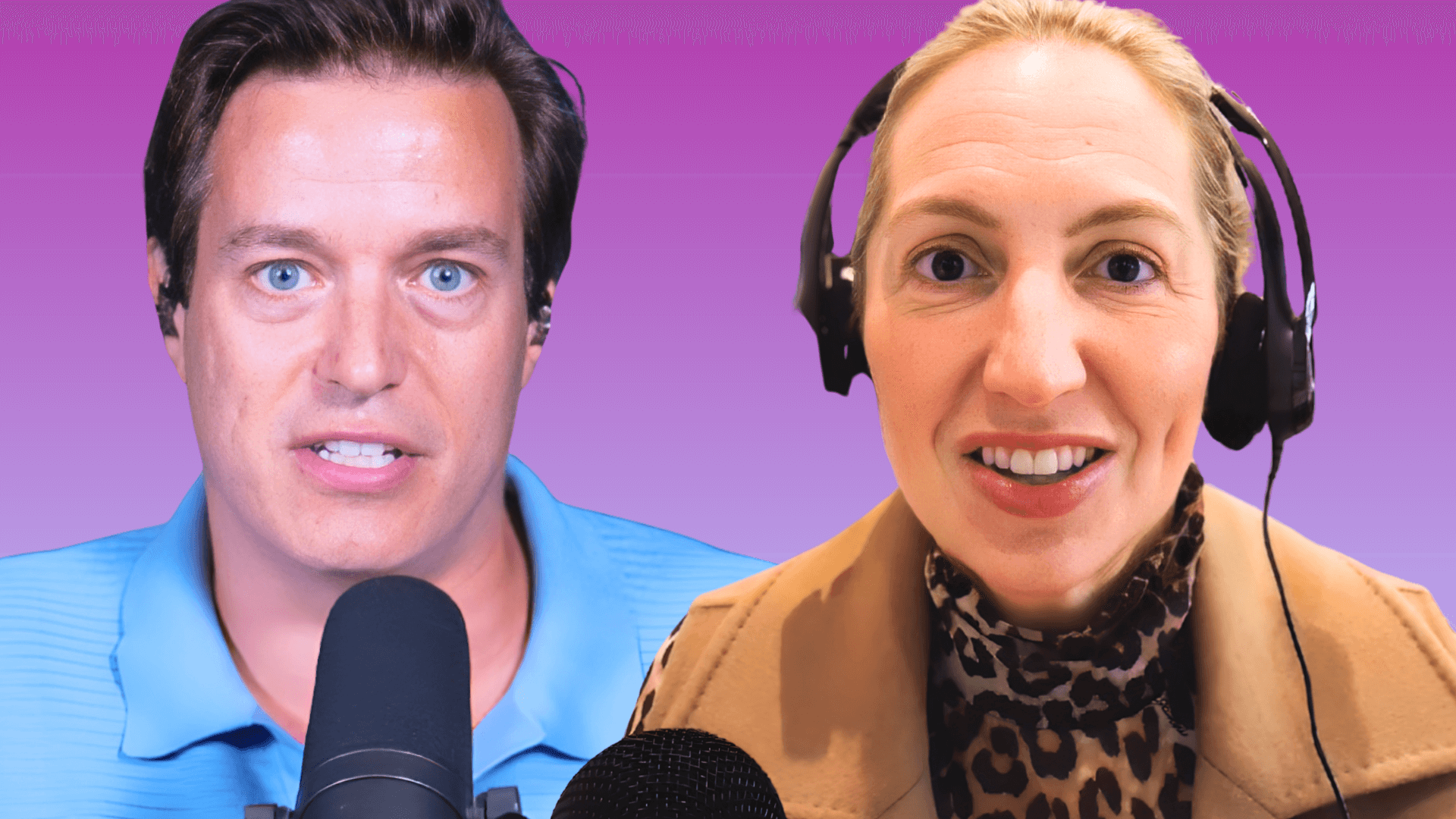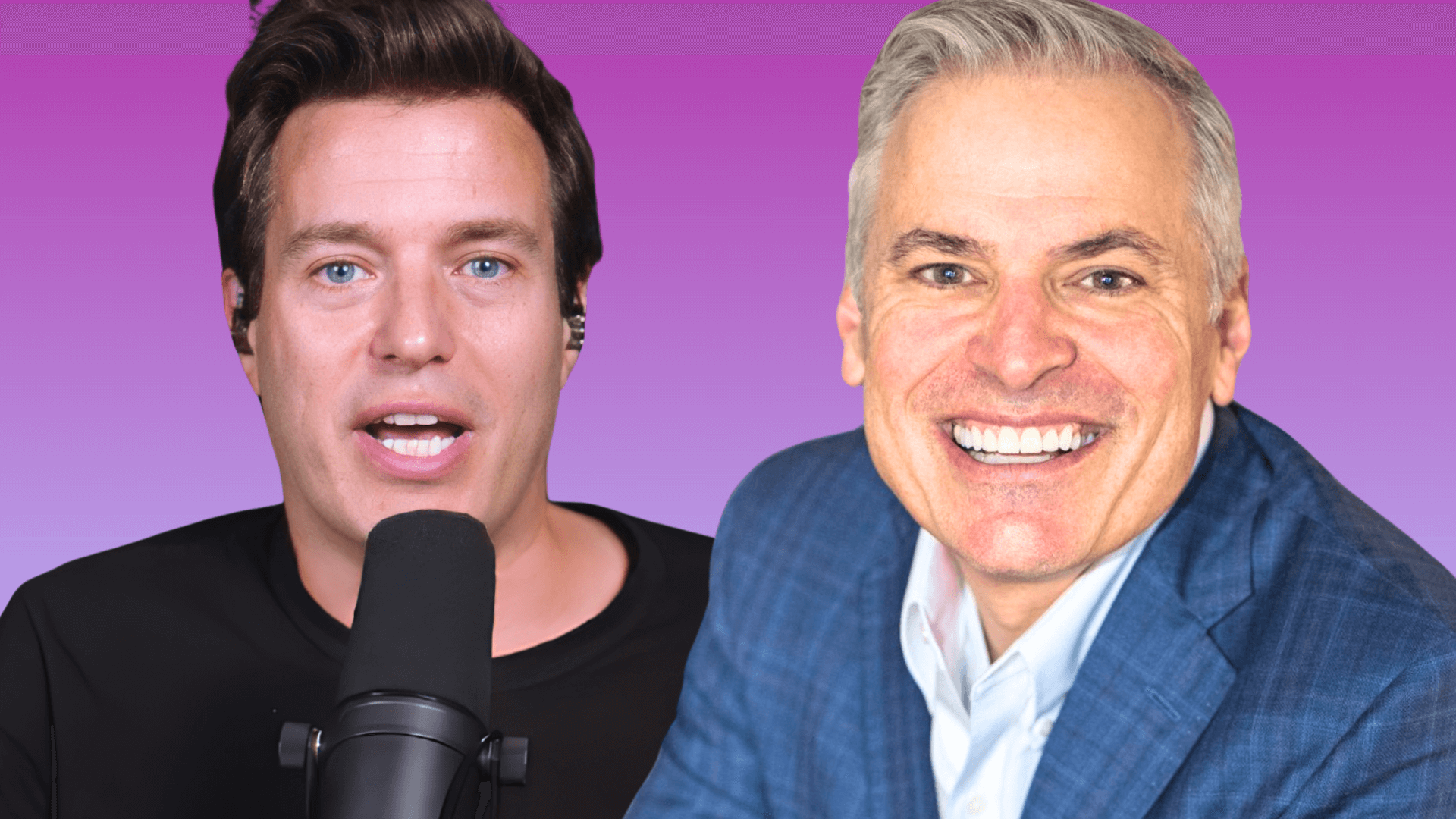Even if it seems like you’ve got the world figured out and you should be loving life, you might be among a surprising number of high-performing people who find happiness, confidence, and connection elusive.
“The high performer only ever really sees the gap between themselves and everyone else — and how much worse they are without realizing what’s great about them.” -Jason Connell
The Cheat Sheet:
- Sleep deprivation isn’t a status symbol. (04:24)
- Regarding motivation: do you usually find yourself being pushed toward a path of action, or pulled to it? (08:42)
- Take yourself on a date. (10:34)
- Indulge your inner kid (but avoid paintball). (18:53)
- Do you believe in magic? (30:18)
- And so much more…
[aoc-subscribe]
High-performing people like authors, entrepreneurs, founders, executives, and athletes aren’t immune to the self-doubts that plague everyone else. In fact, the inner voice of someone who habitually pushes themselves to the limit tends to be harshly self-judgmental, which can make the pursuit of happiness all the more daunting.
In episode 444 of The Art of Charm, we talk to Jason Connell, a high performer who learned this lesson early in life and now teaches self-love and self-compassion to exceptionally high-performing young adults through his Ignited Leadership program. As an added bonus, we participate in our first on-air magic trick with Jason, employing the help of the United States Postal Service as our lovely assistant. Hope you like it!
More About This Show
We all have struggles with that often-curmudgeonly voice in our heads that tells us we’re not good enough to do the things in life we really want to do. You might think that high-performing people would be immune to this common phenomenon and possess self-compassion and self-love in stratospheric levels, but Jason Connell tells us that it’s “about 50/50.”
“A lot of people have felt love their entire lives and fell into their passion at a young age and they went on to build a million-dollar business [or whatever goal they were aiming for],” says Jason. “They’re all set. The flip side — the other 50 percent or so — what’s happened to them is they have become addicted to external gratification or they believed that when they made a million dollars [or whatever their goal was], they would suddenly love themselves. In the same way that alcohol tends to magnify however you already feel, success does the exact same thing. So if you don’t love yourself, if you don’t treat yourself well, if you don’t prioritize yourself and then you become successful, it’s just going to get worse, not better.”
In other words, the idea of becoming a high performer is not going to solve this particular problem. Many high performers are geared to succeed from an early age not necessarily to fulfill what they think of as their own dreams, but as a way to please somebody else (parents being a pretty common example).
Jason admits that he’s fallen into this trap many times: “I’ve thought, well, if I just get a girlfriend or if I just make $100,000 this year, or if I just travel the world, then suddenly I’ll be happy.”
But what he came to discover was that these external things weren’t what led to happiness, confidence, or connection. A successful path to any level of fulfillment begins within one’s self. “It pretty much starts inside you,” says Jason, “with the emotional work of figuring out who you are and treating yourself really well — realizing you’re worthy of it all.”
Getting Started with Emotional Work
So we understand the importance of this emotional work, but where do we begin? Jason says the first question he’ll ask anyone who’s on this journey is: “How many hours a night are you sleeping?”
“These days,” he says, “we wear sleep deprivation as though it’s a status symbol. If you get by on four hours of sleep, you’re way more important than everybody else in the world.”
To paraphrase Jason, this is a load of hooey. “The first level of emotional work for a lot of people has nothing to do with digging into your childhood…but actually taking good care of your physical body. The relationship between the physical and the emotional is so much more interwoven than we realize.”
Do you feel like you should be enjoying life because your accomplishments look great on paper, yet you can’t shake whatever blues are hounding your appreciation of these accomplishments? Then your very first step should be an examination of how you’re treating your physical body. His advice supports what your mom’s been telling you all along: “Get 8, 9, 10 hours of sleep a night; eat more fruits and vegetables; drink more water.”
One you’ve got this basic stuff down, ask yourself what your inner monologue sounds like. “Some people listening might not even be aware that they have an inner voice,” says Jason, “so the first step is to be quiet and just listen as your inner voice starts talking to you. Most people’s inner voices — and this is totally true of me before I actually addressed it — are a [posterior-related orifice]. It’s your job to hear that and let it speak and see what’s true and what’s not true and move forward from there.”
In short: if you talk to your friends like you talk to yourself, would you have any friends? We’re all guilty of being our own worst critics, but the high performer’s inner voice may be even more ceaseless in its criticisms.
“A lot people in general spend a huge amount of time comparing themselves to others,” says Jason. “And when you do that, almost assuredly, you just notice how the other person is better than you. They’re smarter, they’re more attractive, they made more money, or whatever. And the second you play that game — which, to be fair, is basically inevitable in a capitalist western culture — you start losing. It’s just a rigged game…everybody has stuff that they’re better than you at, and everybody has stuff that they’re worse than you at. The high performer only ever really sees the gap between themselves and everyone else and how much worse they are without realizing what’s great about them.”
You can’t be the entrepreneur who started your business three days ago and compare yourself with where Facebook’s Mark Zuckerberg is right now. It’s unfair to yourself and damaging to your psyche! You deserve better. So be nicer…to you.
Instead of comparing yourself to others as a way to motivate yourself, examine other ways that motivation usually presents itself to you. Are you generally pushed toward a path of action, or are you being pulled to it?
“If you’re being pushed and you’re just beating yourself up and it’s a lot of uphill effort, probably you’re [going] in the wrong direction,” says Jason. “But if you feel pulled, and you’re being swept away by the flow or the excitement in something that’s natural to you, probably then you’re on the right path.”
Why You Should Be Kind to Yourself
Whenever he’s consulting or teaching, Jason has found that being the first to open up paves the way toward good relationships — so he shares his story with us here.
In his early twenties, Jason built a business that was what most would call successful — at least in economic terms. He was flying around the world in first class and booked speaking engagements that would attract hundreds of people. After one such speech in Kansas City, Jason found himself having a breakdown in his luxury hotel room. The speech was fine (“I think I got a standing ovation,” he says), but Jason was not. He’d been neglecting himself. The meaningful relationships he’d built with others were deteriorating, his physical health was crap, his mental health was crap, and his spiritual life was non-existent.
This void he felt in his own life needed to be filled, but how? By reacquainting himself with…himself.
“We’re so good about prioritizing other people and taking every last meeting and pushing ourselves to do whatever, but I urge people to schedule three [to] five hours — it doesn’t matter when — turn off your phone, turn off your computer, and do something that is totally and completely for you.”
That’s right. Take yourself on a date. Nobody else is invited. This is important, Jason says, because:
- “By eliminating distractions and quieting your life down — with no phone, no computer, no other people…[what’s] in your head or in your heart starts to become more obvious and you can no longer ignore it.”
- “Suddenly, you are treating yourself like somebody that you love — somebody that’s worth respect. Somebody that’s worth connecting to and deserving of empathy and compassion and all these great human things.”
If a beloved family member or friend were visiting from out of town, for instance, wouldn’t you schedule that visit around showing them a good time? Extend the same courtesy to yourself — regularly — and see what happens. (Hint: the results will be positive.)
Questions to Help Connect to Yourself and Develop the Foundations of Authentic Confidence
In this episode, Jason tells us we should interview ourselves — and he promised to provide a list of questions (provided below). He gives us these three easy instructions to follow when we’re asking ourselves these questions:
- First, eliminate all distractions and be alone as you answer these questions. This can be done in one sitting, but I suggest you spread it out over several weeks.
- Second, write your answers down on paper. This forces you to slow down and crystallize your thoughts and feelings.
- Third, be honest. Shine a bright light on yourself and, when you start to feel vulnerable, lean into that.
The Questions
- If I knew I was going to die in six months, what would I do? How would I spend the rest of my life?
- If I had $100,000,000, what would I do with my life? (Tip: think beyond the hedonistic and material stuff — that stuff matters, but really focus on how you would spend your time.)
- Of all the things I have done, what am I most proud of?
- What lies have I been telling myself? Why have I been telling them to myself?
- What lies have I been telling other people? Why have I been telling them these things?
- What is my biggest fear? What is it about that thing that scares me? How is it holding me back?
- When was I last truly happy? What was it about that moment that stands out and made me happy? How can I get more of that in my life?
- When was I last truly sad? What was it about that moment that stands out and made me unhappy? How can I create less of that in my life?
- In what area am I most succeeding in my life? What is it that enables me to succeed here?
- What’s holding me back from an even greater level of success and happiness?
- In what area am I most failing in my life? Why am I failing here? Does it matter that I’m failing?
- What would my best friend say my greatest strength is? How can I use more of this in my life?
- What would my worst enemy say my greatest weakness is? How is it holding me back?
- What can I offer the world that almost no one else can?
- What are my wildest dreams? Am I pursuing them? If not, how come, and what can I do to start?
- What would I want my loved ones to say about me at my funeral?
- What do I value most in life?

Listen to this episode in its entirety to find out how indulging your inner kid is a great trick for escaping the rut of self-neglect, why Jordan hates paintball, and how magic knows no bounds — or at least confinement to just one ZIP code.
THANKS, JASON CONNELL!
Resources from this episode:
Ignited Leadership
Ignited Leadership at Facebook
The Art of Charm bootcamps
You’ll also like:
-The Art of Charm Toolbox
-Best of The Art of Charm Podcast
On your phone? Click here to write us a well-deserved iTunes review and help us outrank the riffraff!




